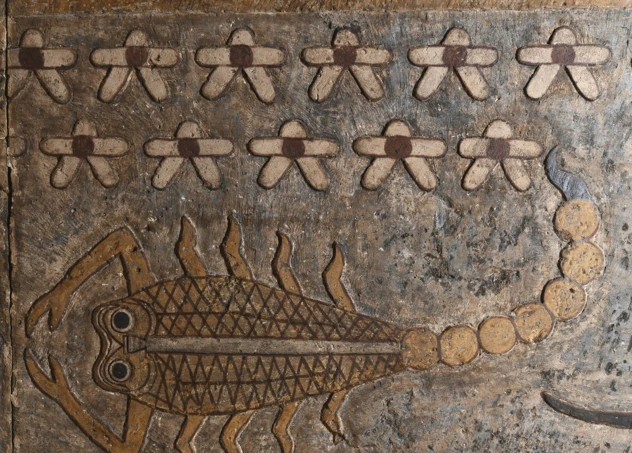The captivating world of Egyptian mythology has long fascinated people across the globe. With its rich tapestry of gods, goddesses, and mythical tales, ancient Egyptian culture has left an indelible mark on human history. One area where the influence of Egyptian mythology is particularly intriguing is in the realm of zodiac signs. In this article, we will delve into the ancient creation myths, explore the connection between Egyptian gods and the zodiac signs we know today, and examine how this influence has shaped the characteristics associated with each sign. Join us on a journey through time as we uncover the fascinating interplay between Egyptian mythology and the celestial world of astrology.
Contents
- Ancient Egyptian Mythology
- The Origins of Astrology
- Connection between Egyptian Mythology and Zodiac Signs
- Impact on Zodiac Sign Characteristics
- Egyptian Zodiac Signs
- The Modern Zodiac
- Egyptian Mythology in Horoscopes
- Conclusion
-
Frequently Asked Questions
- 1. How did ancient Egyptians view the role of gods and goddesses in their mythology?
- 2. What is the significance of the creation myth in Egyptian mythology?
- 3. Were the Egyptian gods and goddesses worshipped individually or collectively?
- 4. How did Egyptian mythology influence daily life and rituals?
- 5. What is the connection between Egyptian mythology and astrology?
- 6. Did the Egyptians have their own zodiac signs?
- 7. How did the Egyptians interpret the characteristics of their zodiac signs?
- 8. Did Egyptian mythology have an impact on other ancient cultures?
- 9. What caused the shift from Egyptian to the modern zodiac system?
- 10. How is Egyptian mythology incorporated in horoscope interpretations today?
- References
-
Frequently Asked Questions
- 1. How did ancient Egyptians view the concept of creation?
- 2. Who were some of the prominent gods and goddesses in Egyptian mythology?
- 3. What is the connection between Egyptian mythology and astrology?
- 4. What is the significance of the Heliocentric Zodiac?
- 5. How do Egyptian gods and goddesses influence specific zodiac signs?
- 6. How does Egyptian mythology impact the characteristics of Aries?
- 7. What is the significance of the Egyptian Zodiac signs?
- 8. What are some lesser-known Egyptian Zodiac signs?
- 9. How does Egyptian mythology tie into modern astrology?
- 10. What can ancient Egyptian horoscope symbols reveal about a person’s life?
- References
- Read More
Ancient Egyptian Mythology
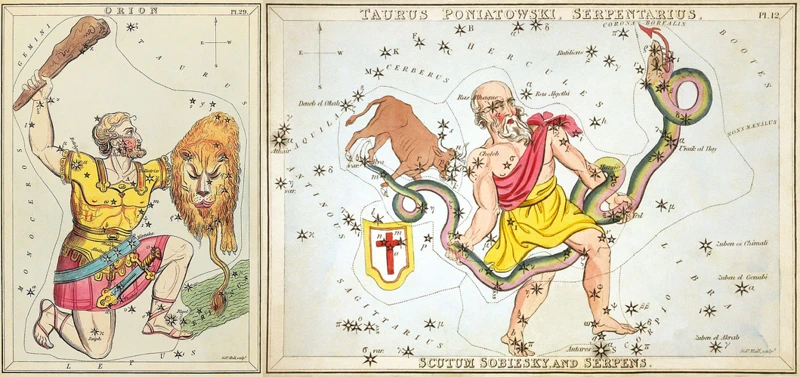
In the heart of ancient Egypt, mythology flourished as a way to understand the mysteries of the world and the power of the gods. The Egyptians believed in a complex pantheon of deities, each with their own role and significance. At the core of their mythology was the creation myth, which explained how the world came into existence. According to the myth, Atum, the first god, emerged from the primordial waters of Nun and created the cosmos. He then birthed the gods Shu and Tefnut, who gave rise to the next generation of gods, including Geb (the earth) and Nut (the sky). These divine beings were not only worshipped, but also seen as guides and influencers in various aspects of life, including the celestial realm. Egyptian mythology provided a rich tapestry of stories that permeated every facet of society, from daily rituals to the grand temples dedicated to the gods. To truly grasp the influence of Egyptian mythology on zodiac signs, we must first understand the intricate tales that shaped their beliefs and rituals. To unravel the legends and peel back the layers of ancient mythology, let’s dive deeper into the captivating world of ancient Egyptian culture and its connection to astrology and the zodiac signs we know today.
Creation Myth
According to the ancient Egyptian creation myth, the world was brought into existence by the god Atum. Born from the primordial waters of Nun, Atum was considered the first and supreme deity. The creation myth states that Atum created the cosmos by uttering a series of divine words, effectively giving birth to Shu, the god of air, and Tefnut, the goddess of moisture. These celestial beings then gave rise to Geb, the god of the earth, and Nut, the goddess of the sky. Geb and Nut, in turn, brought forth Osiris, Set, Isis, and Nephthys, the next generation of gods and goddesses who played pivotal roles in Egyptian mythology and society. This intriguing creation myth highlights the significant role played by the elements of water and air in the formation of the world. It is in these ancient legends that we find the roots of the deep connection between Egyptian mythology and the zodiac signs we recognize today. For more insights into the fascinating world of astrology, you can explore the compatibility between the Ophiuchus and Aries signs, or uncover the unraveling legends of Ophiuchus in ancient mythology.
Gods and Goddesses
The gods and goddesses of ancient Egyptian mythology were a diverse and captivating pantheon, each with their unique attributes and significance. One of the most well-known deities was Ra, the sun god, who was believed to be the creator of all life. Ra was depicted as a falcon-headed man, and it was said that he sailed his solar boat across the sky during the day and journeyed through the underworld at night. Another prominent deity was Isis, the goddess of magic and fertility. Known as a protective mother figure, Isis was often depicted with wings and a throne-shaped headdress. Osiris, the god of the afterlife, held a central role in Egyptian mythology as the judge and ruler of the underworld. Often portrayed with green skin, Osiris was depicted wrapped in bandages, symbolizing rebirth and resurrection. Hathor, the goddess of love, beauty, and joy, was depicted as a cow or a woman with cow horns and a sun disk. She was associated with music, dance, and the arts, and was believed to provide guidance and protection to individuals. The gods and goddesses of ancient Egypt played a vital role in shaping every aspect of Egyptian life, from religion to daily rituals. To delve even deeper into the enchanting world of Egyptian mythology and how it influenced the zodiac signs we know today, let’s explore the connection between these deities and astrology itself. By unraveling the legends surrounding the gods and goddesses, we gain further insights into the intricate tapestry of ancient mythology and its influence on the celestial world and the zodiac signs we associate with today.
The Origins of Astrology
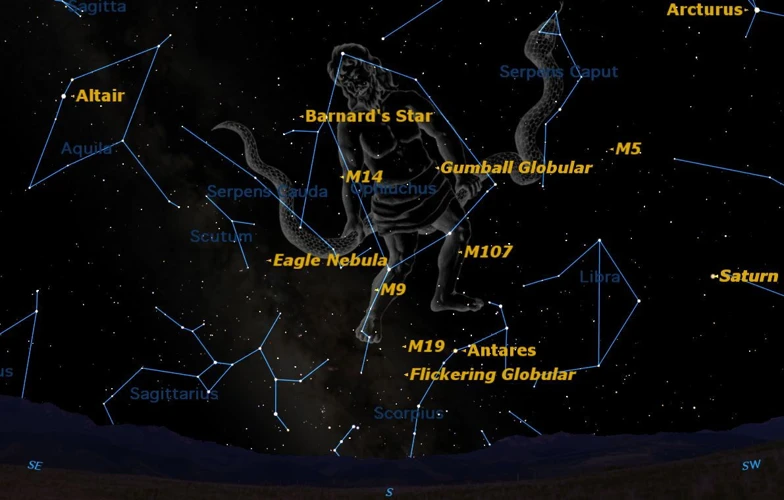
The origins of astrology can be traced back to ancient civilizations, including the Egyptians. It was during the Hellenistic period, around 300 BCE, that the Greeks began to merge their own celestial observations with the existing knowledge of the Egyptians and Mesopotamians. The Egyptians were known for their meticulous study of the stars and the belief that celestial bodies held great significance for earthly events. This knowledge was passed down through generations and eventually intersected with Greek philosophy and mathematics. The Greek philosopher and mathematician Ptolemy played a pivotal role in organizing and formalizing the knowledge of astrology in his work called the Tetrabiblos. He established the foundation for the astrological system as we know it today, including the division of the zodiac into 12 signs and the belief that the position of the planets at the time of a person’s birth has an influence on their character and destiny. The fusion of Egyptian mythology, Greek philosophy, and mathematical precision laid the groundwork for the birth of astrology and its subsequent development throughout history. This ancient knowledge continues to captivate and intrigue us to this day, as we explore the intricate connections between celestial bodies and human existence. To learn more about the harmony and compatibility that exists between different zodiac signs, you can check out the Ophiuchus-Aries compatibility.
Connection between Egyptian Mythology and Zodiac Signs
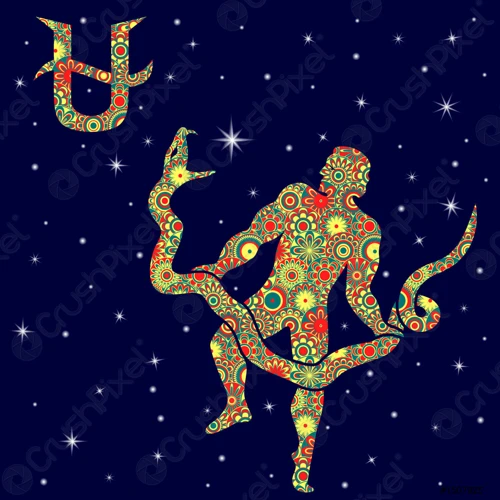
The connection between Egyptian mythology and zodiac signs is a fascinating journey that intertwines the celestial realm with the rich mythological tapestry of ancient Egypt. One significant aspect is the concept of the Heliocentric Zodiac, which dates back to ancient Egyptian astrologers who observed the movements of the sun and its influence on earthly events. The Egyptian gods also played a pivotal role in shaping the zodiac signs we know today. Each zodiac sign is believed to be influenced by a specific god or goddess, infusing them with distinct characteristics and traits. For example, Aries, the first sign of the zodiac, is associated with the Egyptian god Amun, giving this sign a dynamic and assertive nature. Similarly, Leo, the fifth sign, draws its influence from the powerful lion-headed goddess Sekhmet, embodying strength and leadership. The intriguing connection between Egyptian mythology and zodiac signs goes beyond mere symbolism; it is a fusion of ancient beliefs and celestial observations that continue to captivate and shape our understanding of astrology. To further unravel the legends and delve into the profound influence of Egyptian mythology on zodiac signs, explore the connection between Ophiuchus and ancient mythology, or delve into the symbolism of water in different cultures.
The Heliocentric Zodiac
The Heliocentric Zodiac is a concept that originated from ancient Egyptian astrology and is crucial to understanding the connection between Egyptian mythology and zodiac signs. Unlike the commonly known geocentric model, where Earth is believed to be the center of the universe, the Egyptians adopted a heliocentric model, with the sun as the central point. This shift in perspective had a profound impact on their interpretation of celestial phenomena. The heliocentric zodiac consisted of twelve constellations, each representing a different sign, much like the modern zodiac. However, the Egyptian zodiac also incorporated the rhythm of the Nile River and the agricultural cycles that were vital to their civilization. This unique blend of astronomical and earthly elements demonstrates the intricate intertwining of myth, nature, and the cosmos in Egyptian culture. Understanding the heliocentric zodiac provides a foundation for exploring the profound influence of Egyptian gods on zodiac signs and the characteristics associated with each sign. To further unravel the legends and delve into the connection between ancient mythology, astrology, and zodiac signs, continue reading about the intriguing symbols and stories that have shaped human understanding throughout the ages.
The Influence of Egyptian Gods on Zodiac Signs
The ancient Egyptians believed that the gods had a profound influence on every aspect of life and existence, including the celestial realm. This belief extended to the zodiac signs as well. Each zodiac sign was associated with a specific Egyptian god or goddess, and their characteristics and attributes were believed to be imbued in those born under each sign. For example, Aries, represented by the ram, is associated with the god Khnum, who was believed to have created the bodies of all living beings on a potter’s wheel. This connection brings forth qualities such as creativity and craftsmanship for those born under the sign of Aries. Similarly, Leo, represented by the lion, is linked to the goddess Sekhmet, symbolizing power, strength, and courage. On the other hand, Scorpio, represented by the scorpion, draws its influence from the goddess Isis, who was associated with transformation and regeneration. These Egyptian gods and goddesses provided a deeper understanding of the characteristics and traits attributed to each zodiac sign. By exploring these ancient connections, we unravel the legends and symbolism that have shaped our perception of astrology and the zodiac signs we know today. To learn more about the unraveling legends of Ophiuchus and other ancient mythologies, or to explore the symbolism of water cultures in relation to the zodiac signs, you can find fascinating articles by following the provided links.
Impact on Zodiac Sign Characteristics
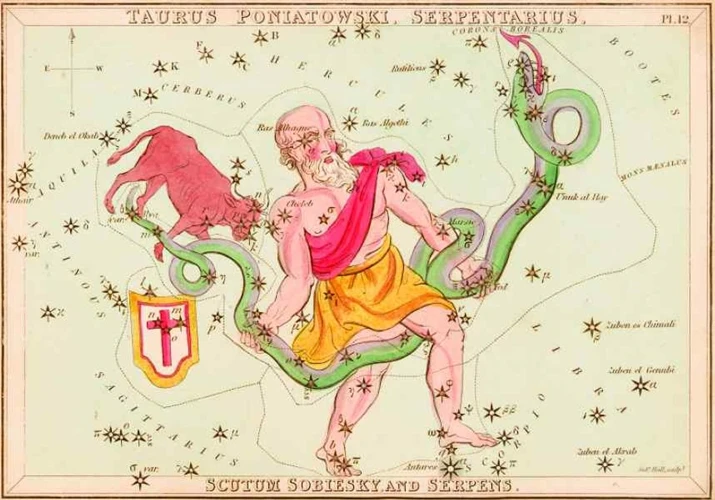
The influence of Egyptian mythology on zodiac sign characteristics is both intriguing and profound. Each zodiac sign is associated with specific qualities and traits that are believed to influence an individual’s personality and destiny. The ancient Egyptians, with their deep reverence for the gods and their intimate knowledge of celestial bodies, played a significant role in shaping these characteristics. Take, for example, Aries – The Ram. In Egyptian mythology, the ram was associated with the god Amun, the creator god who symbolized fertility and strength. This connection imbued Aries with qualities of courage, leadership, and determination. Similarly, Leo – The Lion draws its characteristics from the Egyptian lion-headed goddess, Sekhmet. Known as the goddess of war and healing, Sekhmet personified power, loyalty, and passion – traits that are strongly associated with the fiery and dominant nature of Leos. Another example is Scorpio – The Scorpion, which reflects the influence of the Egyptian goddess Serket. Serket, goddess of scorpions, was believed to protect the pharaoh and ward off evil spirits. The association with this fierce goddess imparts Scorpios with qualities of intensity, secrecy, and a mysterious allure. By understanding the Egyptian mythology behind each zodiac sign, we can gain deeper insights into the archetypal characteristics and motivations that are said to influence individuals born under specific signs. Explore the unraveling legends of Ophiuchus in ancient mythology or the symbolism of water cultures to uncover even more connections and influences that shape our understanding of zodiac sign characteristics.
Aries – The Ram
In the realm of the zodiac signs, Aries, represented by the strong and fearless ram, holds a special place. Aries is the first sign of the zodiac, symbolizing new beginnings, passion, and the spirit of a warrior. In ancient Egyptian mythology, the ram held symbolic significance, representing power, leadership, and strength. The ram-headed god, Khnum, was associated with creation and renewal, often depicted as the one who shaped humans on his potter’s wheel. Aries individuals, influenced by both Egyptian mythology and the zodiac, are known for their ambitious nature and their determination to conquer any challenges that come their way. With their boldness and enthusiasm, they embody the spirit of the ram, charging ahead fearlessly in pursuit of their goals. Curious to learn more about the mysteries of ancient mythology? Dive into the intriguing legends and unravel the rich tapestry of ancient Egyptian culture in our article on Unraveling Legends: Ophiuchus in Ancient Mythology.
Leo – The Lion
The zodiac sign Leo, represented by the majestic lion, carries significant influence from ancient Egyptian mythology. In Egyptian culture, the lion held great symbolism and was associated with power, royalty, and strength. In fact, the lion was considered a royal creature and symbolized the pharaoh, the ruler of Egypt. The connection between Leo and the lion can be traced back to the Egyptian sun god, Ra, who was often depicted with the head of a lion. Ra was believed to be the creator of the world and the ruler of the sun. His association with the lion emphasized his dominion and authority. This symbolism carries over into the zodiac sign of Leo, where individuals born under this sign are often associated with leadership, confidence, and a commanding presence. Leos are known for their charisma and ability to take charge, much like the powerful lion of ancient Egyptian mythology. So, if you’re a Leo, embrace your inner lion and harness the regal energy that echoes through the ages.
Scorpio – The Scorpion
Scorpio, represented by the powerful Scorpion, holds a prominent place in the zodiac spectrum. In Egyptian mythology, this sign resonates with the story of the goddess Isis and her quest to avenge the death of her beloved Osiris. The Scorpion embodies the vengeful and passionate nature of Isis as she seeks justice and brings about transformative change. This water sign is associated with deep emotions and intensity, reflecting the eternal cycle of life, death, and rebirth. Egyptians believed that the Scorpion had powers to manipulate the elements, harnessing the energy of water to bring about both destruction and healing. The symbolism of water in Egyptian culture is profound, representing the divine force of creation and regeneration. It is through the element of water that the Scorpion gains its emotional depth and profound sense of intuition. Those born under the sign of Scorpio possess an innate ability to navigate the depths of their emotions and use their powerful intuition to unravel the mysteries that surround them. They are often described as passionate, resourceful, and fiercely loyal, embodying the qualities associated with the Scorpion. As we explore the influence of Egyptian mythology on zodiac signs, the Scorpion holds a special place, as it represents the deep connection between the water element and the transformative power of Scorpio. To further explore the symbolism of water in different cultures, check out our article on the symbolism of water in various cultures.
Egyptian Zodiac Signs
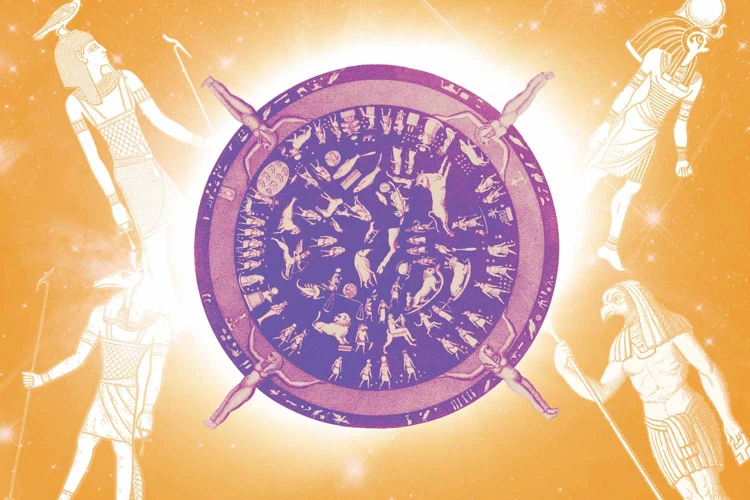
One fascinating aspect of the influence of Egyptian mythology on zodiac signs is the existence of Egyptian Zodiac Signs. In addition to the twelve zodiac signs that are commonly known today, the ancient Egyptians had their own unique set of signs. One of these signs was “The Cat.” Cats held a special significance in ancient Egyptian culture, symbolizing protection and good fortune. Those born under this sign were believed to possess qualities such as loyalty, independence, and a keen intuition. Another intriguing Egyptian Zodiac Sign was “The Nile.” Representing the life-giving waters that were critical for agriculture and sustenance, individuals born under this sign were said to be nurturing, empathetic, and deeply connected to their emotions. These Egyptian Zodiac Signs offer a fascinating glimpse into the rich mythology and symbolism that permeated ancient Egyptian society, and they provide an intriguing parallel to the more familiar zodiac signs we associate with astrology today.
The Cat
In ancient Egyptian mythology, the cat held a special place of reverence and significance. Known as “miw,” cats were considered sacred beings and were associated with the goddess Bastet (also known as Bast). Bastet was the goddess of home, fertility, and protection, and she was often depicted with the head of a lioness or as a domestic cat. The Egyptians believed that cats possessed protective qualities and were guardians against evil spirits. Along with their protective nature, cats were also associated with joy, grace, and beauty. They were domesticated and revered as companions within Egyptian households. The veneration of cats reached its peak during the New Kingdom period, and the penalty for harming or killing a cat was severe, even resulting in death. The cat’s significance extended beyond mythology and domestic life to the realm of the zodiac. The cat was believed to embody certain characteristics that later became associated with the zodiac sign of Leo. Like the majestic lion, those born under the sign of Leo are often seen as strong, confident, and passionate individuals with natural leadership qualities. The connection between the cat and the zodiac sign is a testament to the enduring influence of ancient Egyptian mythology on our understanding of astrology and the symbolism of the zodiac signs we recognize today.
The Nile
The Nile, the life-giving river of ancient Egypt, held immense significance in Egyptian mythology. It was not just a physical waterway but also a metaphorical representation of creation and abundance. In Egyptian cosmology, the Nile was seen as the earthly manifestation of the god Hapi, who was associated with fertility and nourishment. The river’s annual flooding was believed to be the result of Hapi’s tears of joy and was a vital source of irrigation for agriculture. The Nile was revered as a symbol of life, providing sustenance for crops, animals, and ultimately, the people of Egypt.
The importance of the Nile in Egyptian mythology is evident in the widespread worship and rituals associated with the river. Temples and shrines were erected along its banks, dedicated to deities such as Hapi and Isis, who were believed to have a direct influence over the river’s ebb and flow. The Nile was also seen as a pathway between the earthly realm and the afterlife, with boats and barges used for ceremonial processions and funerary rites.
The annual flooding of the Nile was a pivotal event in Egyptian culture, celebrated with great fervor. It marked the beginning of the agricultural season, known as “Inundation,” when the land was replenished with fertile soil carried by the river. This cycle of flooding and receding became intricately intertwined with the Egyptian calendar and the concept of time itself.
The Nile’s profound influence permeated not just mythology, but every aspect of ancient Egyptian life. Its waters were believed to possess healing properties, and people sought its blessings for prosperity, fertility, and protection. The Nile offered a sense of security and continuity, as its annual floods brought the promise of abundance and renewal.
The Nile held deep mythological significance in ancient Egypt, representing the cycle of life, fertility, and the interplay between the divine and the earthly. Its vital importance in sustaining the civilization of Egypt makes it an integral part of understanding the influence of Egyptian mythology on the beliefs and practices surrounding astrology and zodiac signs.
The Modern Zodiac
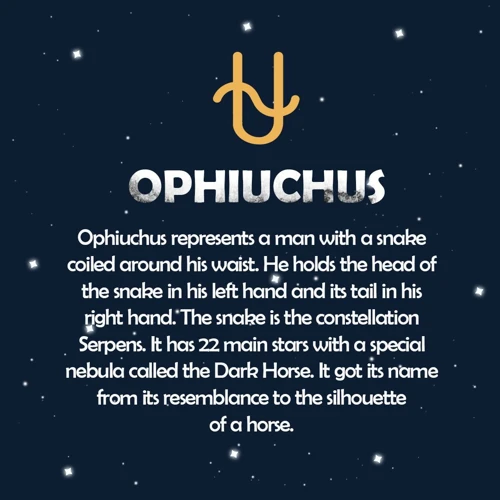
The modern zodiac that we are familiar with today consists of twelve signs, each representing different personality traits and characteristics. These signs are based on the Earth’s alignment with the sun and the constellations that the sun appears to move through during the year. However, it is important to note that the modern zodiac system is not directly derived from ancient Egyptian mythology. Instead, it has its roots in ancient Mesopotamian astrology, particularly the Babylonian system. The Babylonians divided the zodiac into twelve equal parts, assigning specific constellations to each section. Over time, this system was adopted and adapted by various cultures, including the Greeks and Romans, who added their own myths and stories to the celestial tapestry. The modern zodiac signs we know today, such as Aries, Leo, and Scorpio, each have their own unique symbolism and associations. It is fascinating to see how ancient myths and cultures have shaped the way we perceive and interpret these zodiac signs in the present day. Despite its divergence from ancient Egyptian mythology, the modern zodiac continues to captivate and intrigue millions of people around the world, offering insights into personality traits, compatibility, and even future possibilities.
Astronomical Misalignment
One interesting aspect of the connection between Egyptian mythology and the modern zodiac is the issue of astronomical misalignment. Over the centuries, the positions of the stars and constellations have gradually shifted due to a phenomenon called precession. This means that the zodiac signs we associate with specific dates today may not align with the ancient Egyptian zodiac signs as closely as we might think. The gradual shift in the Earth’s axis has led to a misalignment between the traditional zodiac and the actual astronomical positions of the constellations. This misalignment has sparked debate among astronomers and astrologers alike, with some arguing for the inclusion of a 13th zodiac sign, Ophiuchus, to account for the shifting positions of the stars. While the deliberations continue, it is fascinating to consider how the ancient Egyptians may have perceived and interpreted the celestial bodies in the context of their mythology and astrology.
13th Zodiac Sign Controversy
The inclusion of a 13th zodiac sign has been a topic of debate and controversy among astrologers and astrology enthusiasts. This controversy stems from the fact that the traditional zodiac system, based on the ancient Greek and Roman models, does not account for a 13th sign. However, there is a constellation that aligns with this missing sign – Ophiuchus. Ophiuchus, also known as the Serpent Bearer, is a constellation that lies along the plane of the ecliptic, just like the other 12 zodiac constellations. Its presence has led some to argue that it should be recognized as the 13th zodiac sign, thus shifting the dates and characteristics of all the other signs. However, many astrologers argue against this notion, stating that the traditional zodiac system and its symbolism are deeply rooted in centuries of tradition and should not be altered. They argue that incorporating Ophiuchus would disrupt the established framework and create confusion among astrology enthusiasts. Despite the controversy, some people have embraced Ophiuchus as a 13th zodiac sign, attributing unique characteristics and traits to individuals born under its influence. This ongoing debate underscores the complex and ever-evolving nature of astrology and the diverse perspectives that exist within the realm of zodiac signs.
Egyptian Mythology in Horoscopes
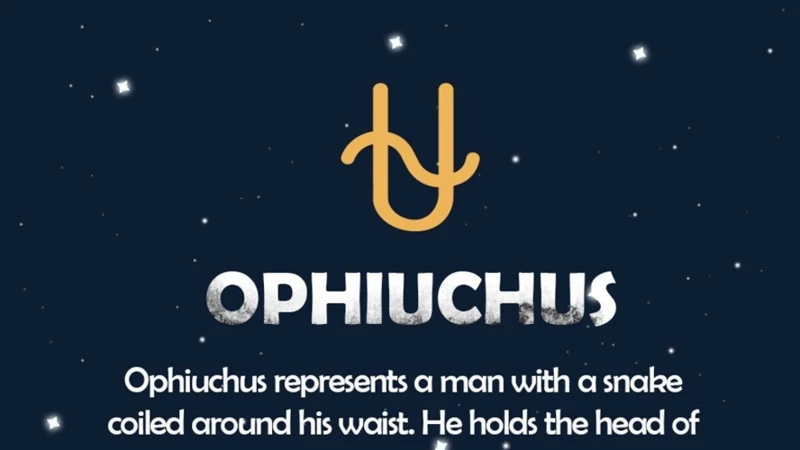
The influence of Egyptian mythology extends beyond the creation of zodiac signs; it also finds its place in horoscopes. In modern times, horoscopes serve as a way to gain insights into personality traits, relationships, and future events based on one’s zodiac sign. Drawing from ancient Egyptian mythology, these horoscopes incorporate symbols and interpretations that connect individuals to the divine realms. Each zodiac sign in Egyptian mythology is associated with specific gods or goddesses, which in turn influence the characteristics attributed to that sign. For instance, Aries, represented by the ram, draws inspiration from the god Amun-Ra, the king of the gods who personifies power and leadership. This association imbues Aries individuals with qualities such as assertiveness, ambition, and a commanding presence. Similarly, Leo, symbolized by the lion, aligns with the goddess Sekhmet, who embodies strength and passion. Leos are often depicted as confident, charismatic, and fiercely loyal. Scorpio, represented by the scorpion, is associated with the goddess Serqet, known for her cunning and protection. Scorpios are often seen as mysterious, intense, and resourceful. These representations, rooted in Egyptian mythology, add depth and nuance to the characteristics attributed to each zodiac sign and provide a unique lens through which to interpret horoscopes. By exploring the ancient Egyptian symbology and connecting it to the modern understanding of zodiac signs, horoscope enthusiasts can delve deeper into the cosmic forces that shape their lives.
Horoscope Interpretation
When it comes to horoscope interpretation, understanding the symbolism and meanings behind each zodiac sign is key. In ancient Egyptian mythology, each sign was associated with specific gods and goddesses, as well as cosmic energies. This connection between the zodiac signs and Egyptian mythology allows for a deeper interpretation of horoscopes. For example, Aries, symbolized by the ram, was linked to the god Amun-Ra, the supreme deity often depicted with a ram’s head. This connection suggests traits of leadership, courage, and assertiveness in individuals born under the sign of Aries. Similarly, Leo, represented by the lion, is associated with the goddess Sekhmet, known for her strength and fierceness. This alignment indicates qualities such as confidence, passion, and a strong presence in those born under the Leo sign. The interpretations of each sign go beyond basic personality traits, encompassing the mythological archetypes and energies that shape individual horoscopes. By exploring the symbolism and mythology connected to each zodiac sign, horoscope interpretation becomes a multi-dimensional journey that taps into the ancient wisdom of Egyptian mythology.
Ancient Egyptian Horoscope Symbols
The ancient Egyptians had a profound fascination with the celestial world and its influence on human lives. This fascination led to the development of their own unique set of horoscope symbols, which provided insights into a person’s character and destiny. One of the most well-known symbols is the Eye of Horus, also known as the Wedjat. This powerful symbol represented protection, healing, and restoration. People born under the Eye of Horus were believed to possess great intuition and wisdom. Another significant symbol was the Ankh, which symbolized eternal life. Those born under the Ankh were believed to have a deep connection to the spiritual realm and a strong sense of purpose. The Scarab, a symbol of rebirth and transformation, represented those individuals who had the ability to adapt and overcome challenges in their lives. The Djed pillar, associated with stability and strength, represented individuals who were seen as pillars of support and guidance. These ancient Egyptian horoscope symbols provided a unique lens through which individuals explored their own personalities and life journeys. Today, we can still explore and interpret these symbols to gain a deeper understanding of ourselves and our place in the world.
Conclusion
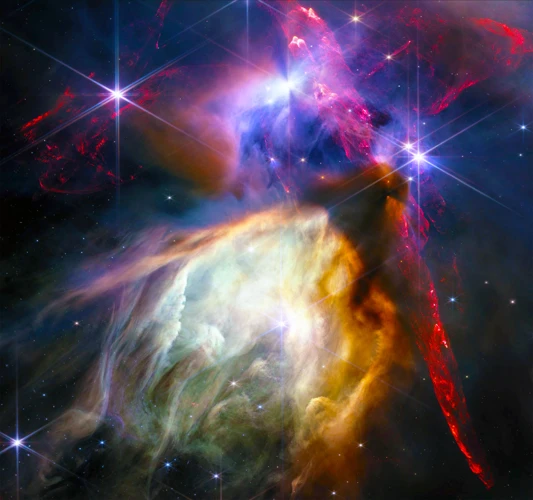
In conclusion, the influence of Egyptian mythology on zodiac signs is a fascinating exploration into the ancient beliefs and symbolism that continue to shape our understanding of astrology today. The rich tapestry of gods and goddesses, creation myths, and the connection between celestial and earthly realms all intertwine to create a complex web of influence. Through the Heliocentric Zodiac and the embodiment of various gods and goddesses within each sign, we can see the lasting impact of Egyptian mythology on the characteristics associated with each zodiac sign. Additionally, the existence of the Egyptian zodiac signs, such as the Cat and the Nile, further highlights the cultural significance of this ancient civilization. While the modern zodiac has faced challenges with astronomical misalignment and the controversial addition of a 13th sign, the essence of Egyptian mythology remains woven into the fabric of horoscopes. The interpretation of horoscopes and the use of ancient Egyptian symbols in modern astrology serve as a testament to the enduring power of mythology and its ability to transcend time. As we gaze at the stars and consult our zodiac signs, we can reflect on the captivating influence of Egyptian mythology and the profound ways in which it continues to shape our understanding of ourselves and the universe.
Frequently Asked Questions
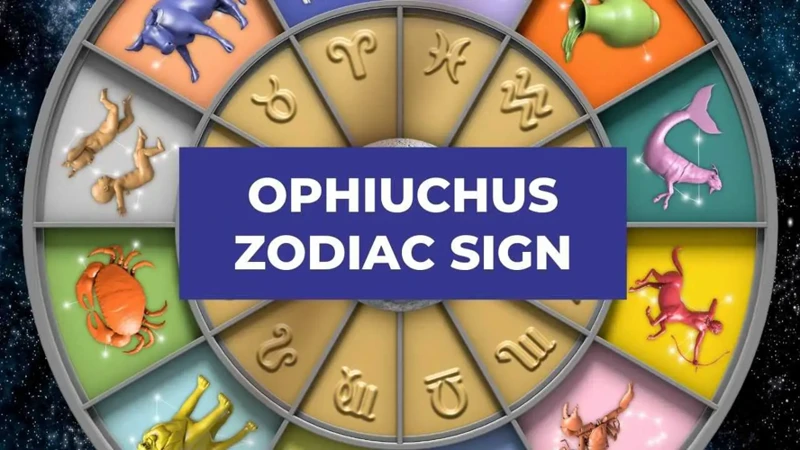
1. How did ancient Egyptians view the role of gods and goddesses in their mythology?
Ancient Egyptians believed that gods and goddesses played a vital role in all aspects of life. They were seen as powerful beings who controlled the forces of nature and influenced human destiny.
2. What is the significance of the creation myth in Egyptian mythology?
The creation myth held great importance in Egyptian mythology as it explained the origin of the world and the divine beings who shaped it. It provided a basis for understanding the order and structure of the universe.
3. Were the Egyptian gods and goddesses worshipped individually or collectively?
Both individual and collective worship of gods and goddesses existed in ancient Egypt. Some deities had their dedicated temples, while others were worshipped as part of larger pantheons.
4. How did Egyptian mythology influence daily life and rituals?
Egyptian mythology permeated every aspect of daily life in ancient Egypt. It influenced religious ceremonies, agricultural practices, and even daily rituals such as personal hygiene and meal preparations.
5. What is the connection between Egyptian mythology and astrology?
Egyptian mythology heavily influenced the development of astrology. The ancient Egyptians associated specific gods and goddesses with celestial bodies and believed in the divine influence of the stars and planets on human life and destiny.
6. Did the Egyptians have their own zodiac signs?
Yes, the Egyptians had their own zodiac signs, which were different from the ones we know today. Their zodiac signs were based on the observations of the night sky and the movements of certain animals and objects.
7. How did the Egyptians interpret the characteristics of their zodiac signs?
The Egyptians believed that each zodiac sign had specific characteristics and qualities associated with it. These characteristics were believed to influence a person’s personality, behavior, and destiny.
8. Did Egyptian mythology have an impact on other ancient cultures?
Absolutely! Egyptian mythology had a significant influence on neighboring ancient cultures, such as the Greeks and Romans. Many of their gods and goddesses were either inspired by or directly borrowed from Egyptian deities.
9. What caused the shift from Egyptian to the modern zodiac system?
The shift from the Egyptian zodiac system to the modern zodiac can be attributed to the Hellenistic period. During this time, cultural exchanges between Egypt and Greece resulted in the fusion of Egyptian and Greek astrology, which eventually evolved into the system we know today.
10. How is Egyptian mythology incorporated in horoscope interpretations today?
Modern horoscope interpretations still draw inspiration from ancient Egyptian mythology. Symbols, deities, and myths from Egyptian culture are often used to provide deeper meaning and context to astrology readings and interpretations.
References
- Complete Depiction of The Zodiac Found in Ancient …
- Egyptian Astrology: The 12 Zodiac Signs of the Ancient World
Frequently Asked Questions

1. How did ancient Egyptians view the concept of creation?
Ancient Egyptians believed in a creation myth that involved the emergence of the world from chaos and the birth of gods and goddesses.
2. Who were some of the prominent gods and goddesses in Egyptian mythology?
A few notable gods and goddesses in Egyptian mythology include Ra, the sun god; Isis, the goddess of magic; and Osiris, the god of the afterlife.
3. What is the connection between Egyptian mythology and astrology?
Egyptian mythology had a significant influence on the development of astrology, particularly in the way celestial bodies were associated with specific gods and goddesses.
4. What is the significance of the Heliocentric Zodiac?
The Heliocentric Zodiac was a system of astrology in which the positions of the planets were measured from the perspective of the Sun, further connecting celestial bodies to Egyptian gods and goddesses.
5. How do Egyptian gods and goddesses influence specific zodiac signs?
Ancient Egyptians believed that each zodiac sign was influenced by a specific god or goddess, which in turn affected the personality traits and characteristics associated with that sign.
6. How does Egyptian mythology impact the characteristics of Aries?
According to Egyptian mythology, Aries is influenced by the god Amun-Ra, which may explain the sign’s assertiveness and leadership qualities.
7. What is the significance of the Egyptian Zodiac signs?
The Egyptian Zodiac signs were based on ancient Egyptian culture and symbolism. Each sign represented different aspects of life and personality traits.
8. What are some lesser-known Egyptian Zodiac signs?
Among the lesser-known Egyptian Zodiac signs are the Cat, which represents grace and independence, and the Nile, which signifies adaptability and creativity.
9. How does Egyptian mythology tie into modern astrology?
Despite some astronomical misalignment, the influence of Egyptian mythology can still be seen in modern astrology through the interpretation of horoscopes and the use of ancient Egyptian symbols.
10. What can ancient Egyptian horoscope symbols reveal about a person’s life?
Ancient Egyptian horoscope symbols can provide insight into various aspects of a person’s life, including their personality traits, strengths, weaknesses, and potential future experiences.
